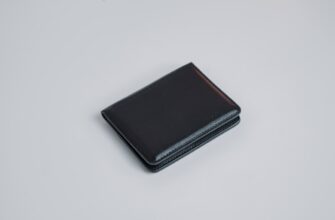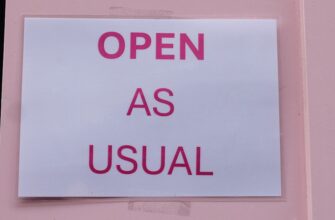- Introduction: XRP, NYDFS, and the Battle for Crypto Legitimacy
- What is XRP? The Digital Asset Powering Global Payments
- NYDFS Explained: New York’s Crypto Gatekeeper
- XRP’s Rocky Road with NYDFS and Regulatory Hurdles
- Why NYDFS Approval Matters for XRP’s Future
- The Path Forward: Regulation, Clarity, and Adoption
- FAQ: XRP and NYDFS Explained
Introduction: XRP, NYDFS, and the Battle for Crypto Legitimacy
The intersection of XRP—Ripple’s digital asset designed for fast cross-border payments—and the New York Department of Financial Services (NYDFS) represents a critical frontier in cryptocurrency regulation. As one of the world’s most influential financial regulators, NYDFS oversees crypto activity through its rigorous BitLicense framework. For XRP, navigating this landscape has been fraught with legal complexities, especially amid Ripple’s ongoing SEC lawsuit. This article breaks down XRP’s NYDFS journey, its current status, and why regulatory clarity matters for investors and the broader crypto ecosystem.
What is XRP? The Digital Asset Powering Global Payments
XRP is a cryptocurrency created by Ripple Labs in 2012 to facilitate instant, low-cost international money transfers. Unlike Bitcoin, it uses a consensus ledger rather than proof-of-work mining, enabling:
- Speed: Settlements in 3-5 seconds vs. minutes/hours for traditional systems.
- Cost Efficiency: Transactions cost fractions of a cent.
- Scalability: Handles 1,500+ transactions per second.
Major banks and payment providers use XRP via Ripple’s On-Demand Liquidity (ODL) solution to bypass pre-funded accounts in cross-border flows.
NYDFS Explained: New York’s Crypto Gatekeeper
The New York Department of Financial Services (NYDFS) regulates all financial services within New York State, including cryptocurrencies. Its 2015 BitLicense regime requires crypto businesses to comply with strict standards for:
- Anti-money laundering (AML) and Know Your Customer (KYC) protocols
- Cybersecurity measures
- Consumer protection and capital reserves
Without a BitLicense, companies cannot offer crypto trading, custody, or payment services to New York residents. Only ~30 firms hold this license today.
XRP’s Rocky Road with NYDFS and Regulatory Hurdles
XRP’s relationship with NYDFS is complicated by Ripple’s lack of a BitLicense and its legal battle with the SEC, which sued Ripple in 2020 for allegedly selling XRP as an unregistered security. Key developments include:
- BitLicense Absence: Ripple does not hold a BitLicense, limiting direct XRP services in New York.
- Exchange Impact: Post-SEC lawsuit, NYDFS-approved exchanges like Coinbase delisted XRP in 2021, though some reinstated it after Ripple’s partial legal wins.
- State-Level Progress: Ripple holds money transmitter licenses in over 30 U.S. states but continues to seek NYDFS approval.
NYDFS monitors the SEC case closely, as a final ruling on XRP’s security status could influence its stance.
Why NYDFS Approval Matters for XRP’s Future
New York is a global financial epicenter, making NYDFS endorsement crucial for XRP:
- Market Access: Approval would unlock services for 20M+ New York residents and institutional clients.
- Legitimacy: A BitLicense signals compliance, boosting trust among banks and regulators worldwide.
- Competitive Edge: Integration with NY-based financial infrastructure could accelerate Ripple’s ODL adoption.
Without it, XRP remains handicapped in one of crypto’s most lucrative markets.
The Path Forward: Regulation, Clarity, and Adoption
XRP’s NYDFS future hinges on two factors: resolution of the SEC lawsuit and Ripple’s engagement with New York regulators. Positive outcomes could spur:
- BitLicense applications from Ripple or partner exchanges.
- Stronger institutional adoption of XRP for real-time settlements.
- New York-led standards for token classification.
As global crypto regulations evolve, NYDFS alignment remains pivotal for XRP’s long-term growth.
FAQ: XRP and NYDFS Explained
Q1: Can I legally buy XRP in New York today?
A1: Yes, through select NYDFS-licensed exchanges like Bitstamp that relisted XRP after Ripple’s court victories. Unlicensed platforms remain inaccessible.
Q2: Does Ripple have a BitLicense?
A2: No. Ripple lacks a BitLicense but holds money transmitter licenses in multiple states. It continues engaging with NYDFS for future compliance.
Q3: How does the SEC lawsuit affect NYDFS’s view of XRP?
A3: NYDFS considers SEC rulings but operates independently. A final court decision classifying XRP as a non-security would ease regulatory hurdles.
Q4: What happens if XRP gains NYDFS approval?
A4: Exchanges could expand XRP offerings, Ripple could deploy ODL in New York, and institutional investment would likely surge.








